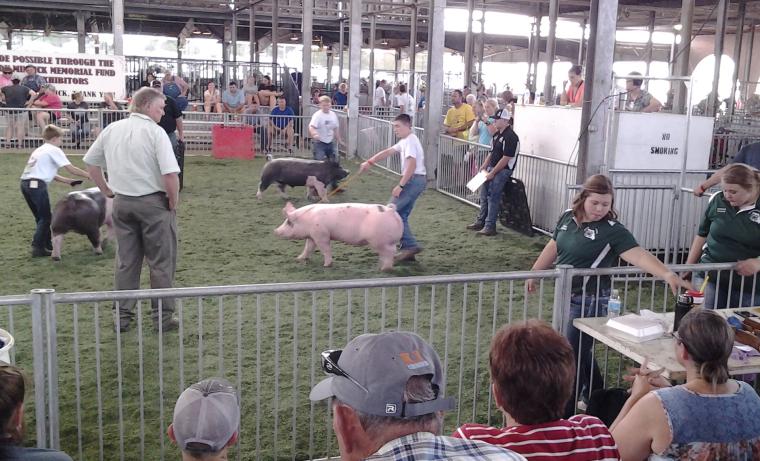Certificate of Veterinary Inspection helps ensure animal health.
COLUMBIA, Mo. – Biosecurity should be top of mind when showing animals at county and state fairs, and having the paper to prove their health is important, said University of Missouri Extension veterinarian Cory Bromfield.
Shows and fairs may require a Certificate of Veterinary Inspection (CVI), sometimes referred to as a “health paper,” from a veterinarian. A CVI helps to ensure only healthy animals go to shows, reducing the likelihood that your animal will pick up something at the show and bring it back home.
Also, if you notice signs of contagious disease in your animals, such as coughing, diarrhea, rashes, etc., you can help keep fairs healthy by leaving the animal at home.
What to do on-farm now
Many think biosecurity needs to be intense and expensive, but small, consistent actions can pay big dividends, Bromfield said. Especially now, in fair season, there are easy things people can do to improve biosecurity and help minimize transmission of diseases, she said.
• Dedicated clothing. People taking animals to fairs should wear dedicated clothing and footwear at the fair and not bring them home to their other animals. This is also important around animals staying on the farm. Dedicated clothing/footwear that doesn’t leave your farm also helps minimize the chance of bringing something back to the farm.
• Isolate animals after the fair. If animals are returning to the farm after the show, house them away from the home herd for at least two weeks, and work with them after working with the home herd. Another option is terminal shows, where the animals will not return to the home herd.
• Bring home animals only. Don’t bring anything from the fair that doesn’t need to come home, such as food, shavings or manure. Wash the trailer to clean off manure. Always wash your hands after interacting with animals.
Photo
Swine - State Fair
Youths in the swine show ring at a previous Missouri State Fair. Photo by Kendra Graham.
Writer: Julie Harker
